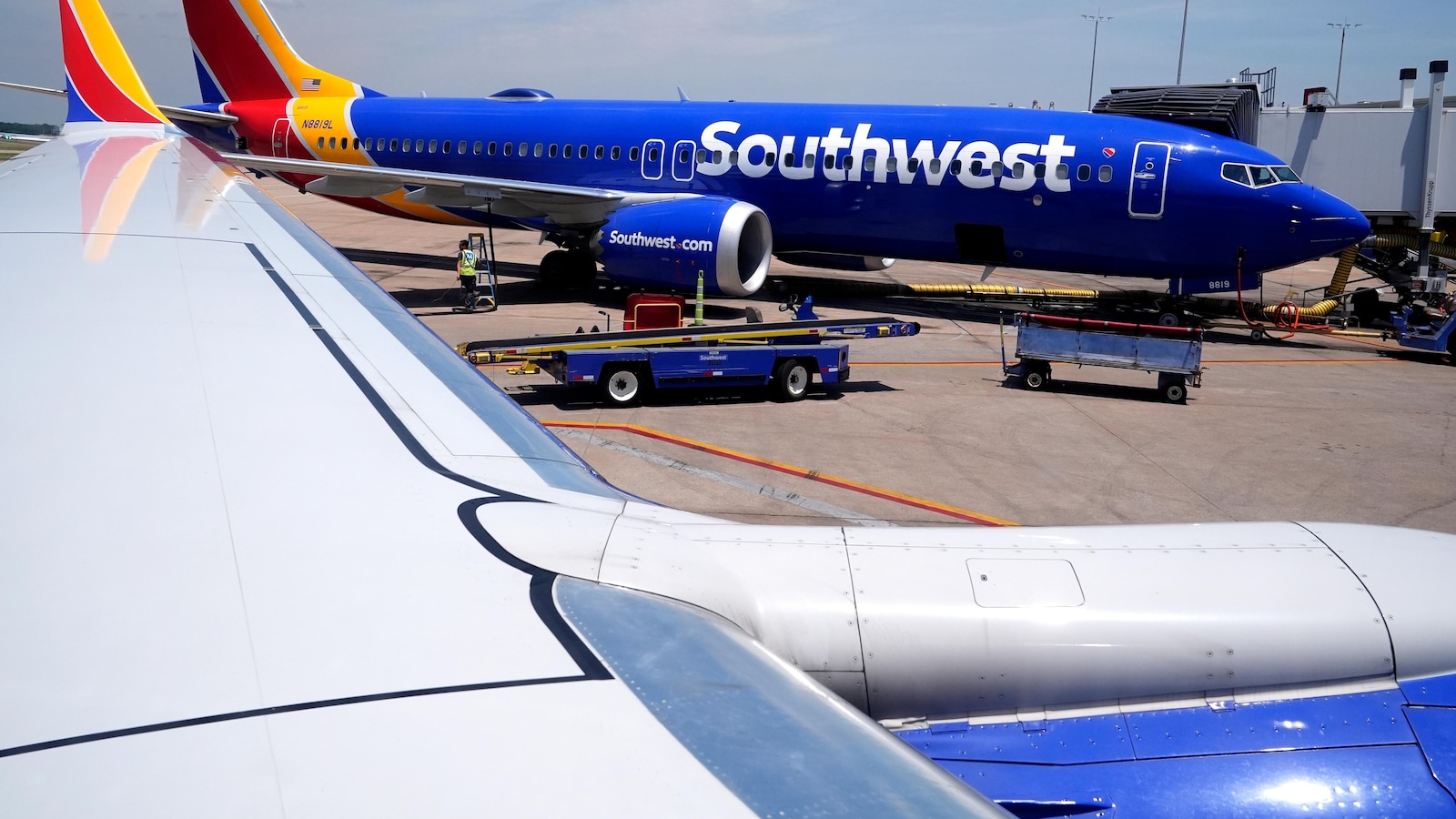Southwest Airlines will revamp its board and the chairman will retire next year, but it intends to keep CEO Robert Jordan after a meeting with hedge fund Elliott Investment Management, which has sought a leadership shakeup at the airline including Jordan’s ouster.
Southwest said Tuesday that six directors will leave the board in November and it plans to appoint four new ones, potentially including candidates put forward by Elliott.
Shares of Southwest Airlines Co. rose slightly before the opening bell Tuesday.
Elliott, the fund led by billionaire investor Paul Singer, has built a 10% stake in recent weeks and advocated changes it says will improve Southwest’s financial performance and stock price. The two sides met Monday.
Elliott blames Southwest’s management for the airline’s stock price dropping by more than half over three years. The hedge fund wants to replace Jordan , who has been CEO since early 2022, and Chairman Gary Kelly, the airline’s previous chief executive. Southwest said Tuesday that Kelly has agreed to retire after the company’s annual meeting next year.
Elliott argues that Southwest leaders haven’t adapted to changes in customers’ preferences and failed to modernize Southwest’s technology, contributing to massive flight cancellations in December 2022. That breakdown cost the airline more than $1 billion.
Southwest has improved its operations, and its cancellation rate since the start of 2023 is slightly lower than industry average and better than chief rivals United, American and Delta, according to FlightAware. However, Southwest planes have been involved in a series of troubling incidents this year, including a flight that came within 400 feet of crashing into the Pacific Ocean, leading the Federal Aviation Administration to increase its oversight of the airline.
Southwest was a profit machine for its first 50 years — it never suffered a full-year loss until the pandemic crushed air travel in 2020.
Since then, Southwest has been more profitable than American Airlines but far less so than Delta Air Lines and United Airlines. Through June, Southwest’s operating margin in the previous 12 months was slightly negative compared with 10.3% at Delta, 8.8% at United and 5.3% at American, according to FactSet.
Southwest was a scrappy upstart for much of its history. It operated out of less-crowded secondary airports where it could turn around arriving planes and take off quickly with a new set of passengers. It appealed to budget-conscious travelers by offering low fares and no fees for changing a reservation or checking up to two bags.
Southwest now flies to many of the same big airports as its rivals. With the rise of “ultra-low-cost carriers,” it often gets undercut on price. It added fees for early boarding.
In April, before Elliott disclosed it was buying Southwest shares, Jordan hinted at more changes in the airline’s longstanding boarding and seating policies.
The CEO announced in July that Southwest will drop open seating, in which passengers pick from empty seats after they board the plane, and start assigning passengers to seats, as all other U.S. carriers do. Southwest also will sell premium seats with more legroom.
And while Southwest still lets bags fly free, it has surveyed passengers to gauge their resistance to checked-bag fees.

